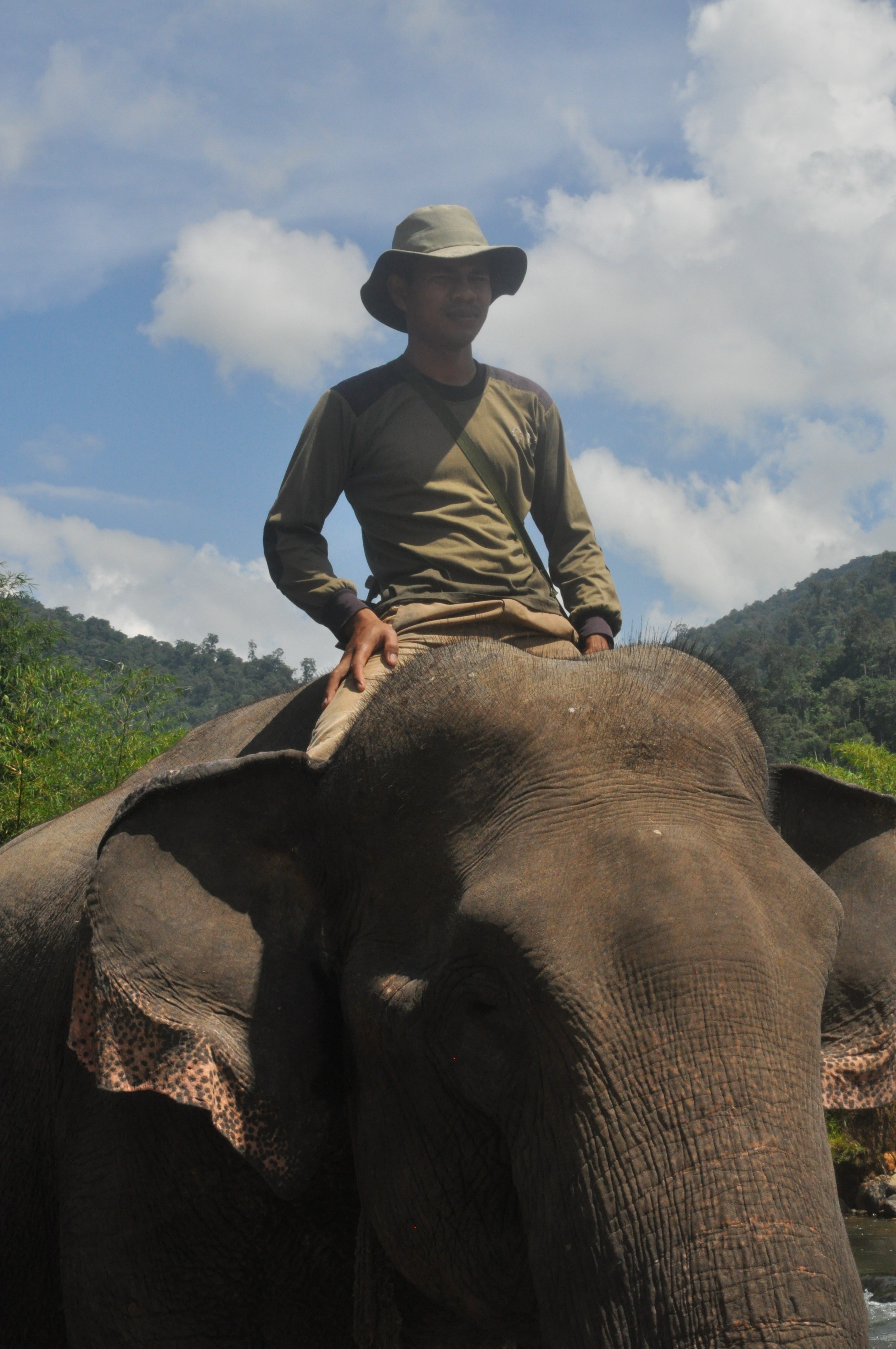Amrizal
Amrizal is part of the Conservation Response Unit field team (CRU, see Project Description) of Mane. He works as a mahout, the person responsible for an elephant’s training and who guides the elephant during an elephant trek. He is a very shy person and I never really had the opportunity to talk to him before making this portrait. During a three day trek in the jungle I got to know him and the rest of the team. He seemed happy to share the story that led him to his work in Mane.
Amrizal told me that he has always been fascinated by elephants. His brother-in-law worked at the government camp where other domestic elephants are kept. For a long time the policy by the Indonesian government was to capture wild elephants in order to domesticate them creating conflicts. Today, a moratorium has been applied against elephant capture, but there are still government run camps in which elephants previously removed from the wild are being kept. The domesticated elephants and mahout at the CRU both come from this government run camp. Therefore, Amrizal has spent a lot of time there. At the age of twelve he tried to ride an elephant, elephant calf that is, and it started to run. He fell, broke is wrist, but still decided that this was “the job he would do.” He later returned to the camp where he spent time helping as a volunteer, waiting for a mahout position to open up. He worked four years at the camp in Sareh, the government camp, before joining Mane’s CRU in 2010. In Sareh, the living conditions for the elephants are harder. They have limited access to fresh food. Amrizal was happy to offer a better living condition to his elephant (each mahout has a dedicated elephant).
The camp at Mane can also intervene in human-elephant conflicts. He says he understands, “that local people need space to grow crops and eat, but elephants and tigers also need that habitat to live.” Elephants just follow the paths that they have previously followed, when farmers expand onto the paths, elephants will come to the open fields and conflicts will arise. “With our elephants, we can go into the field and help local people push the wild elephants back into the forest. And that is important.” In fact, he told me that because the elephants are territorial, the interventions of humans using firecrackers is not enough. The mahouts need to go there with their elephants. If it is a wild elephant that is younger than their domesticated elephants, they will not return for a long period of time. However, in order to deter the older elephants, the CRU will send out the three very old elephants from the government camps that Amrizal described as, “patriarchs,” which seem to repel the wild elephants efficiently every time. He also explained that in Mane, that simply the presence of domesticated elephants at the camp has reduced the conflicts in the area almost to zero. According to him, this has helped change the perception of the local people. He said at “each of our interventions, the people are very grateful, more than before.”
When I asked Amrizal what he thought of the CRU, he answered much more practically than anyone I had interviewed before. He first told me about the living conditions. He began with, “when I’m with my family, I was often lazy to return because the camp is hhard to access and the living conditions before were not comfortable” (the camp has been recently restored, before it was in very poor condition with leaking roofs, making rainy days very unpleasant). Sometimes he feels that there are not enough visits from th people in charge at FFI and hopes that one day they will have the resources needed to further improve the camp. Otherwise, he believes that the CRU’s project has a positive impact on local populations. Though, he does tell me that, “they could do more with more resources, we do not have enough car or motorcycle to access the conflict sites. Today, we do what we can, I use my own bike to go to the scene of conflicts regardless of potential accidents, but we need more resources and more training in the field to know how to use a compass and etc.” To finish our discussion about his work at the CRU, he concluded, “for me, anyway, the most important thing is not my personal comfort, but the one of my elephant.”

